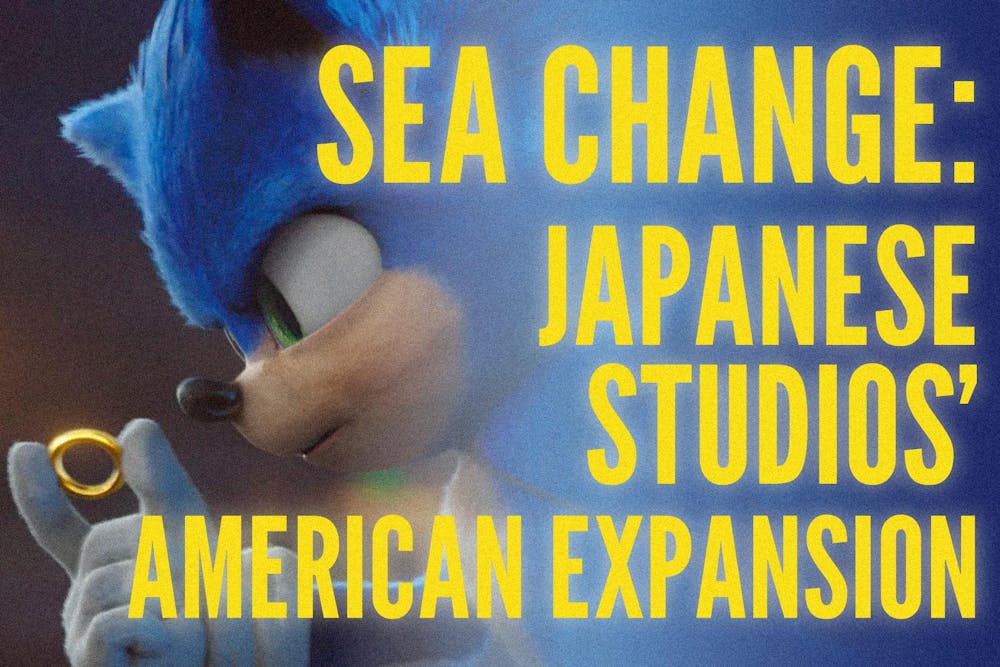A sea change in the American cinematic diet might be on the horizon. According to an article by Liz Shackleton for Deadline, major Japanese film and television producers are expanding to international and specifically American markets, with the hope of adapting their properties to reach new audiences. Per Shackleton, this is “[in] part inspired by the global success of Korean content,” as well as “[Japan’s] huge domestic market . . . shrinking as Japan’s population declines.” As the American film and television industry move through a transitory phase out of cable and, potentially cinematic universes, into streaming and the franchises of the future, how might new global players with strong stories in their arsenal impact Hollywood’s plans? Are American screens going to show more of the whole world?
If superheroes are drying up, then anime and Japanese video game IP probably seem natural successors for American studios, with comparably strong, online fan cultures. Of course, American studios have traditionally not done well with these sorts of properties, only succeeding with Japanese video game adaptations recently (see Paramount’s “Sonic” franchise, Warner Bros.’ “Pokémon: Detective Pikachu,” and Universal’s “The Super Mario Bros. Movie”). Netflix has stepped up to the plate of anime adaptations most boldly, and surely more adaptations from all major studios are soon to follow. But just as superhero films required piloting artists who understood and appreciated the characters to succeed, Hollywood will need to make way for partner studios in Japan who understand their works in ways even the most open-hearted, benevolent American fans cannot. Given how studios continue to cynically approach and bungle properties, it is hard to imagine all the major Hollywood content mills realizing this and not hideously crashing an adaptation in front of American fans who saw through whatever half-hearted, inconsiderate effort they believed would pass.
The main question for this forthcoming cultural exchange is how receptive American audiences and partner studios will be to presenting works from a distinctly different culture and to what degree studios will meddle according to their own ideas of what American audiences want to see. While I would like to say that inauthenticity would sink this whole initiative, that just isn’t true. American audiences will want stories catered to their specific tastes, visual language, and cultural mores, because naturally, most audience members want to see their values, cultural and artistic, commended and reinforced. The key to successful important and adaptation, as always, is attention to detail and a belief in craftsmanship. Every effort to translate a work across the Pacific will require its own distinct creative and marketing approach. The studios willing to humble themselves, admitting there are no easy, universal answers and put in the work for each individual project will be those most primed for successful partnerships. And while commercial cross-cultural adaptations will surely sacrifice cultural specificity and try to solve potential areas of cultural difference before audiences can meditate on how interesting they are, there may also be many opportunities for stories to gain something new in an American adaptation.
Reimagining a story for different tastes may unlock dormant possibilities in the narrative that a new adaptation can explode. This can help facilitate an exchange of ideas and taste between cultures, as a middle-ground piece eases American audiences into that conversation. While that may mean less artistically-ambitious works at the onset of this exchange, it may yield more curious, thoughtful and open audiences in the future, as audiences grow accustomed to new storytelling approaches and cultural ideas that can live alongside their own conventions. To me, that is a future of cinema worth pursuing, and while I don’t imagine Cinemark will become some transcendent forum for international ideas and styles, I do believe these upcoming efforts can bring American audiences to somewhat more global considerations of art, culture and humanity.










